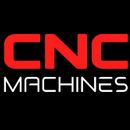The 5 M's of Manufacturing: A Comprehensive Guide

The 5 M's of Manufacturing: A Comprehensive Guide
In the manufacturing industry, understanding the various elements that influence production processes is crucial for optimizing operations and ensuring quality. The 5 M's of manufacturing—Man, Machine, Material, Method, and Measurement—serve as a framework for identifying and analyzing factors that impact manufacturing efficiency and product quality. This comprehensive approach allows manufacturers to systematically address challenges and implement effective solutions, ultimately enhancing their production capabilities. In this article, we will delve into each of the 5 M's, their significance in manufacturing, and how they contribute to successful production outcomes.
1. Man
Definition: The "Man" aspect refers to the human resources involved in the manufacturing process, including operators, engineers, and management. In any manufacturing environment, the skills, expertise, and motivation of the workforce play a pivotal role in determining overall productivity and quality. Skilled personnel are essential for operating machinery, programming, troubleshooting, and ensuring that production runs smoothly. Moreover, fostering a positive work environment that encourages teamwork and communication is vital for maintaining high morale and engagement among employees.
Key Considerations:
- Skill Development: Continuous training and education ensure that employees are well-versed in operating machinery and understanding production processes.
- Workforce Management: Effective leadership and teamwork can enhance productivity and employee morale.
- Safety Protocols: Implementing safety measures is vital for protecting workers and minimizing accidents.
Importance:
A skilled and motivated workforce is essential for maintaining high production standards. Investing in human resources leads to better decision-making, higher quality output, and improved operational efficiency.
2. Machine
Definition: "Machine" refers to the equipment and technology used in manufacturing processes. The choice of machinery can significantly influence the efficiency and precision of production. High-quality machines not only enhance the speed of operations but also ensure that products meet rigorous quality standards. Regular maintenance and timely upgrades of machinery are essential to prevent breakdowns, which can lead to costly downtime and interruptions in the production schedule. In addition to reliability, the integration of cutting-edge technology, such as automation and IoT (Internet of Things), can further optimize machine performance and efficiency.
Key Considerations:
- Quality and Reliability: Choosing high-quality machinery can reduce downtime and increase production efficiency.
- Maintenance Practices: Regular maintenance and timely upgrades of machines are crucial for optimal performance.
- Technology Integration: Incorporating the latest technologies, such as automation and CNC machining, enhances precision and productivity.
Importance:
Effective machine management directly impacts production speed and product quality. Well-maintained machines reduce the risk of breakdowns, leading to more consistent operations.
3. Material
Definition: The "Material" aspect encompasses the raw materials and components used in production. The quality of materials has a direct impact on the final product's performance and reliability. Manufacturers must carefully source their materials to ensure they meet the required specifications and standards. Moreover, effective material management is essential to minimize waste, control costs, and ensure timely availability of resources. Understanding the characteristics and properties of various materials allows manufacturers to select the most suitable options for their production processes, ultimately enhancing product quality.
Key Considerations:
- Material Quality: Sourcing high-quality materials is essential for producing reliable and durable products.
- Inventory Management: Efficient tracking and management of material inventory prevent production delays and excess waste.
- Sustainability Practices: Using sustainable materials contributes to environmental responsibility and can enhance brand reputation.
Importance:
Proper management of materials ensures that production runs smoothly and that the final products meet quality standards. It also helps in minimizing waste and reducing costs.
4. Method
Definition: "Method" refers to the processes and procedures used to manufacture products. Establishing clear and effective manufacturing methods is crucial for ensuring consistency, quality, and efficiency in production. This includes everything from the specific techniques employed in the manufacturing process to the operational workflows that guide production activities. Standard Operating Procedures (SOPs) are essential for documenting these methods, as they provide detailed instructions that help maintain consistency and compliance across the organization.
Key Considerations:
- Standard Operating Procedures (SOPs): Developing clear SOPs ensures consistency and quality in manufacturing processes.
- Process Optimization: Regularly reviewing and optimizing processes can lead to increased efficiency and reduced production costs.
- Adaptability: The ability to modify methods in response to changing market demands or technology advancements is crucial for competitiveness.
Importance:
Effective methods are key to achieving high-quality outputs while minimizing waste. Continuous improvement in manufacturing methods enhances overall operational efficiency.
5. Measurement
Definition: "Measurement" involves the metrics and data used to assess manufacturing performance. Implementing effective measurement practices is essential for monitoring production processes and identifying areas for improvement. Key Performance Indicators (KPIs) serve as benchmarks that help manufacturers evaluate their operational efficiency, product quality, and adherence to schedules. Accurate data collection and analysis enable organizations to make informed decisions, optimize processes, and drive continuous improvement initiatives.
Key Considerations:
- Key Performance Indicators (KPIs): Establishing KPIs helps track important metrics, such as production speed, quality rates, and material usage.
- Data Collection: Accurate and systematic data collection enables better decision-making and process improvements.
- Quality Control: Regular measurement of product quality ensures compliance with specifications and standards.
Importance:
Effective measurement practices provide insights into operational performance and help identify areas for improvement. This data-driven approach supports continuous improvement initiatives.
Conclusion
The 5 M's of manufacturing—Man, Machine, Material, Method, and Measurement—are fundamental elements that significantly influence the efficiency and quality of production processes. By understanding and optimizing these factors, manufacturers can enhance their operations, reduce costs, and improve product quality. Embracing this framework not only supports continuous improvement but also positions manufacturers to adapt to changing market demands and technological advancements effectively. Prioritizing the 5 M's will ultimately lead to greater success and sustainability in the competitive landscape of manufacturing.


